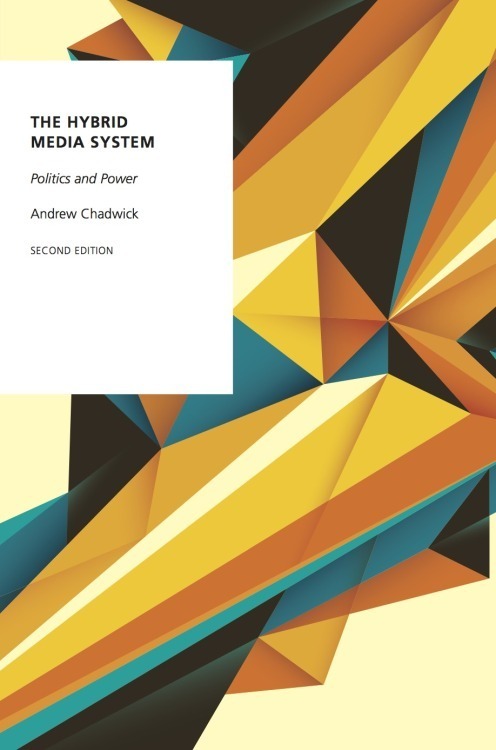Latest News
I recently completed an article commissioned by Zizi Papacharissi for her new edited book, The Routledge Companion to Digital Media and Democracy. It’s a future-oriented theory and overview piece that takes stock of the development of the research over the last 25 years or so. It’s titled ‘What is Gone and What Remains in the Research on Digital Engagement?’ I made the final mix shortly after the U.S. election result and presented it to the American Political Science Association Annual Meeting in Vancouver. Read a blog post here. You can download a preprint here.
My PhD supervisor in the 1990s, Professor Rodney Barker, who had a long and distinguished career at LSE, died recently. I wrote an article for the Times Higher reflecting on the transformational influence of his mentoring style. It’s based, in part, on a blog post I wrote earlier and delivered as a speech at the LSE Department of Government’s memorial event for Rodney on December 10.
New journal articles and public reports from O3C’s Leverhulme-funded project Understanding the Everyday Sharing of Misinformation, hot off the press:
Vaccari, C., Chadwick, A., Hall, N-A., & Lawson, B. (2025). Credibility as a Double-Edged Sword: The Effects of Deceptive Source Misattribution on Disinformation Discernment on Personal Messaging. Journalism & Mass Communication Quarterly. (Download pdf).
Malhotra, P., Hall, N-A, Xia, Y., Stahl, L., Chadwick, A., Vaccari, C., & Lawson, B. (2025). Unpacking Credibility Evaluation on Digital Media: A Case for Interpretive Qualitative Approaches. Annals of the International Communication Association. (Download pdf).
Lawson, B. T., Chadwick, A., Hall, N-A., & Vaccari, C. (2025). The Trustworthiness of Peers and Public Discourse: Exploring How People Navigate Numerical Dis/misinformation on Personal Messaging Platforms. Information, Communication & Society, 28(4), 633–650. (Download pdf).
Chadwick, A., Hall, N-A., & Vaccari, C. (2025). Misinformation Rules!? Could “Group Rules” Reduce Misinformation in Online Personal Messaging? New Media & Society, 27(1), 106–126. (Download pdf).
Chadwick, A., Vaccari, C., & Hall, N-A. (2024). What Explains the Spread of Misinformation in Online Personal Messaging Networks? Exploring the Role of Conflict Avoidance. Digital Journalism, 12(5), 574–593. (Download pdf).
Hall, N-A., Hall, N-A., Chadwick, A., Vaccari, C., Lawson, B., & Akolgo, P. (2024). Research Update: Misinformation on Personal Messaging—Are WhatsApp’s Warnings Effective? Online Civic Culture Centre, Loughborough University. 28pp. (Press release) (Download pdf).
Hall, N-A., Chadwick, A., & Vaccari, C. (2024). Online Misinformation and Everyday Ontological Narratives of Social Distinction. Media, Culture & Society, 46(3), 572–590. (Download pdf).
For the full list of journal articles, public reports, and presentations from this project see the Everyday Misinformation Project website.
I recently helped New Scientist with some background work and commentary for an article it published on mysterious online campaign that aims to discredit a group of scientists.
In the Spring of 2024, I was an invited adviser (unpaid) to a government Rapid Project on Deepfakes and Media Literacy. Meeting notes from the roundtable held as part of the project, chaired by Tom Crick (Chief Scientific Adviser, DCMS) and facilitated by the UK Government Office for Science, have now (May 2025) been published on the Government’s website.
I contributed to the White Paper on political honesty formally discussed on November 25, 2025 in the Welsh Senedd. It was prepared by the Institute for Constitutional and Democratic Research (ICDR), a non-partisan body of lawyers and academics that engages with select committees and public inquiries as well as officials in Westminster, the devolved legislatures and executives, and local government. I was a member of ICDR’s nine-member Working Group, which was established in the summer of 2024. The Group developed a model regulatory proposal for the Senedd's Standards Committee to inform the Welsh Government's plan for a new law whereby politicians or candidates who are found by an independent judicial process to have deliberately lied and failed to correct the public record when formally given the opportunity will be disqualified from office. The White Paper developed an “in principle” model, which can be applied in either a civil law or criminal law context. (See news report here.) It was formally presented to the Welsh Senedd in November, 2024.
In February 2025, the Senedd’s Standards Committee published its final report and recommendations, which enshrined several of the ICDR’s proposals. The Senedd’s press release is available here and the Standards Committee’s full report is here; the summary of recommendations is on pages 7–9.
In November 2025, the Welsh Government introduced a Bill, the Senedd Cymru (Member Accountability and Elections) Bill. This retains the principles of the Standards Committee but it is now clear that it restricts the scope to electoral candidates during election campaigns. At this time of writing (February 16, 2026) the Bill has passed Stage 1 (whole Senedd agreed on the Bill’s basic principles) and Stage 2 (first round of amendments). Stage 3 is further amendments; Stage 4 is final approval of the whole Senedd. There is still a long way to go. The Bill will not be in place in time for the 2026 Senedd elections and the proposed new regulation might fail entirely if Senedd eventually amends the Bill to remove it. Time will tell.
The latest three titles in my book series Oxford Studies in Digital Politics are Annelise Russell (2026) Tweeting Scared: Congress’s Crisis of Communication (2026), Meredith D. Clark (2025) We Tried to Tell Y'All: Black Twitter and the Rise of Digital Counternarratives; and Leticia Bode & Emily K. Vraga (2025) Observed Correction: How We Can All Respond to Misinformation on Social Media. More details here.
In the latest UK Research Excellence Framework (2021), Communication and Media at Loughborough was ranked 5th in the UK and submitted 40 full-time staff. Overall, 92% of its research was ranked in the two highest categories—'world leading' and 'internationally excellent'—with 65% ranked world leading: the highest possible award of 4 stars. Its research environment and research impact were each ranked joint 1st place in the UK, with the highest possible award of 100% 4-star quality.
After many years with a static profile, I’m giving LinkedIn a proper go. It’s far from perfect. The recommender algorithm is opaque. Content from paid accounts gets boosted (I don't pay). But despite these flaws, it has slowly developed some of the flavour of the old academic Twitter—by that I mean 2009–2016 old academic Twitter! Try it and you’ll see.
[Page updated February, 2026]
Banner photo: View from the London Eye



